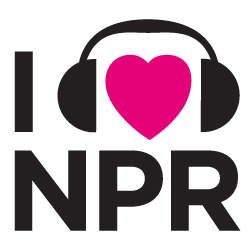 NPR executives have been known to brag that theirs is just about the only news organization to show up in people’s personal ads. For example: “I am in need of some intelligent male company…I am an avid reader, npr listener, talkative, curious and always up for trying something new.”
NPR executives have been known to brag that theirs is just about the only news organization to show up in people’s personal ads. For example: “I am in need of some intelligent male company…I am an avid reader, npr listener, talkative, curious and always up for trying something new.”
Media companies salivate over that kind of loyalty and identification with the brand. “People not only have an affinity for NPR but an affinity for each other, as listeners,” Kinsey Wilson, NPR’s general manager of digital media told me. “We’re the only news organization where public trust has increased over the last decade.”
While there is as yet no dating site for public radio nerds — though Wilson said the idea has come up — his development team recently whipped up a way for listeners to show off their support and discover friends with similar passions. A new Facebook app called I Heart NPR asks fans to put themselves on a map with thousands of others. Users can play games, such as Name That NPR Theme Song (I earned four-of-four virtual tote bags, thank you), and then share the results with friends. Secret games will be “unlocked” with every 100,000 new users, Wilson said.
NPR is already among the most “liked” news organization on Facebook, with 1.4 1.6 million fans. So what’s different about this? “The NPR Facebook page is first and foremost an extension of our news brand,” Wilson said. The I Heart NPR app, he said, is for fans of the organization itself and what it represents to them — the NPR personalities, the weekend rituals, the shared values that bring together like-minded people on a first date.
At the top of the Facebook app is a Twitter-inspired #gopublic stamp, which the network uses as branding on all social platforms. Local stations can also use the stamp and embed the Facebook app on their own sites.
I Heart NPR was conceived, Wilson reassured me, prior to the controversy that forced out two NPR executives and intensified a debate about federal funding of public broadcasting. (It looks like that funding survived the 2011 budget, by the way.)
Wilson said this is a lighthearted experiment and he chose not to define any hard goals for it. “We’re not trying to promote this in an aggressive way. We’ve put it out there and if it takes off, fabulous.” A half-dozen programmers, working part-time, built the app in about two weeks.
NPR’s digital team works on a bold schedule: Programmers work on two-week coding cycles to encourage rapid development. These so-called sprints encourage both failure and innovation. It’s what allowed NPR to develop its iPad app in one month, or two sprints, just in time for the iPad’s launch in April 2010. (That app just surpassed one million downloads.)
I asked Wilson, who used to run digital operations at USA Today, why it can be so difficult for other large organizations to churn out new projects — and how he’s able to do it now. “From my perspective, it comes from long, hard experience doing it badly,” he said. “Resources are always tight and so there’s probably a fear of burning too many cycles on something that…doesn’t go right.” But he said the rapid-release schedule encourages unconventional projects like I Heart NPR, and very few ideas are swatted down.
“The digital media staff here is about half the size of the one I had at USA Today and probably produces twice the output,” he said.